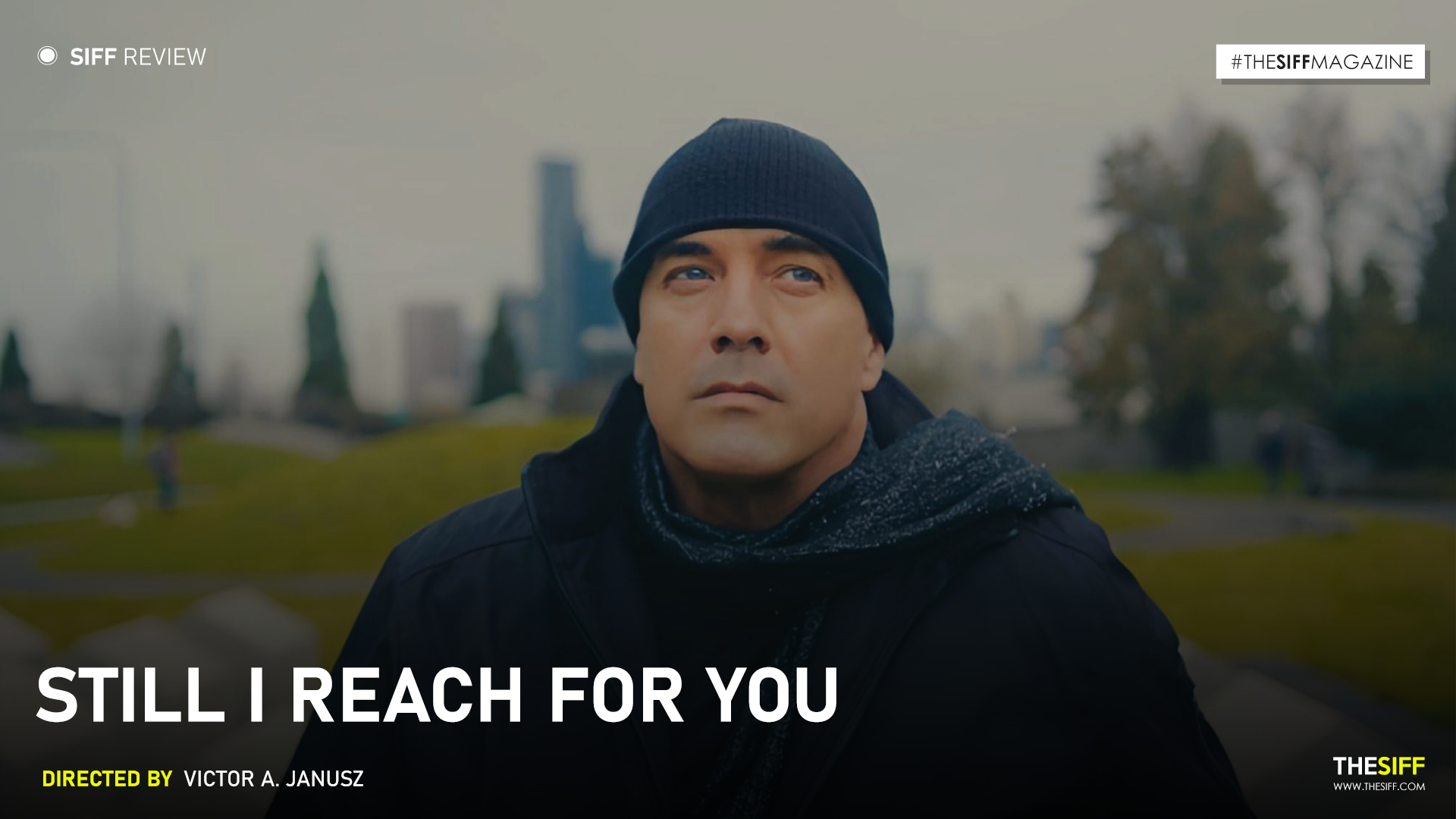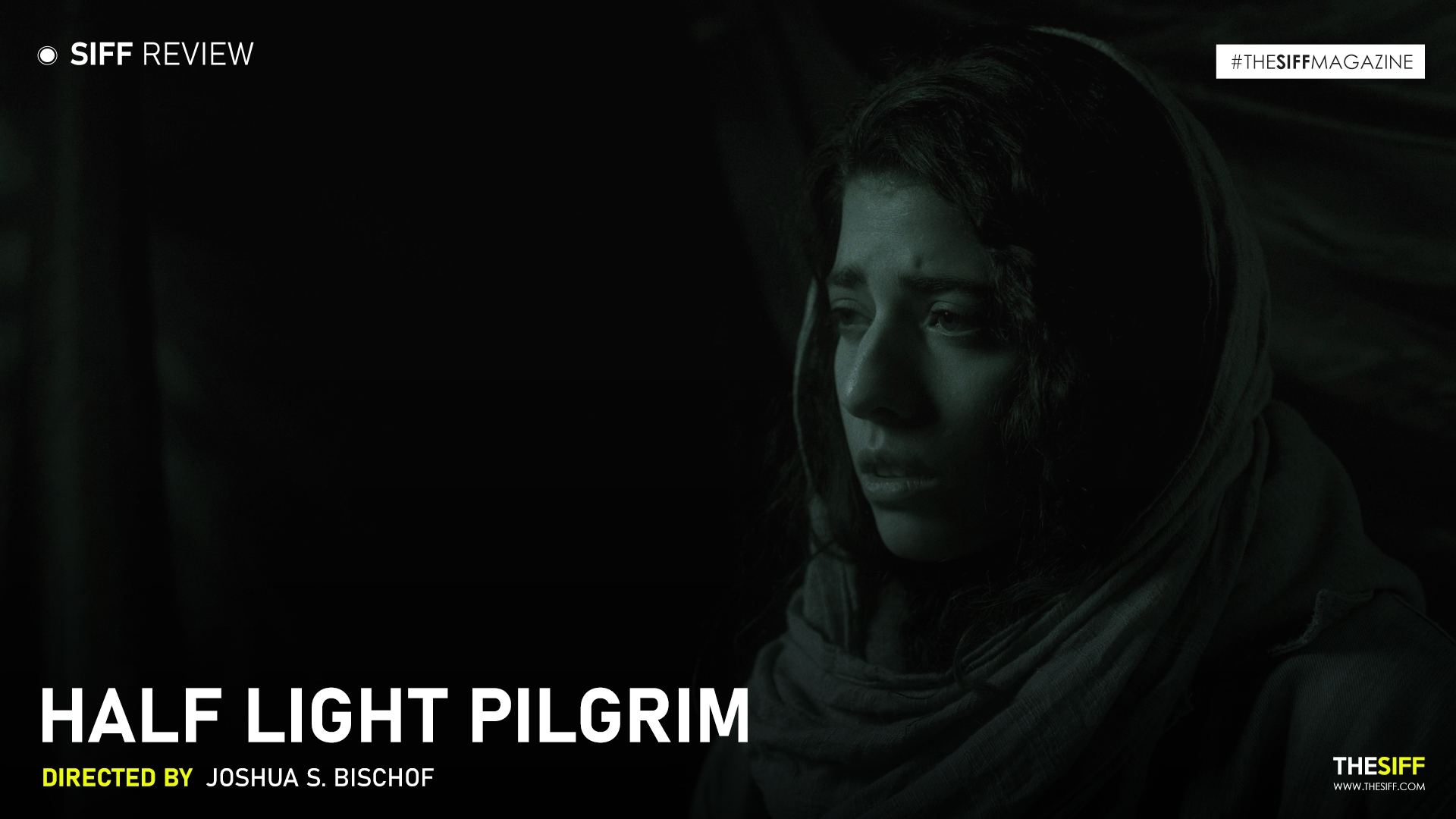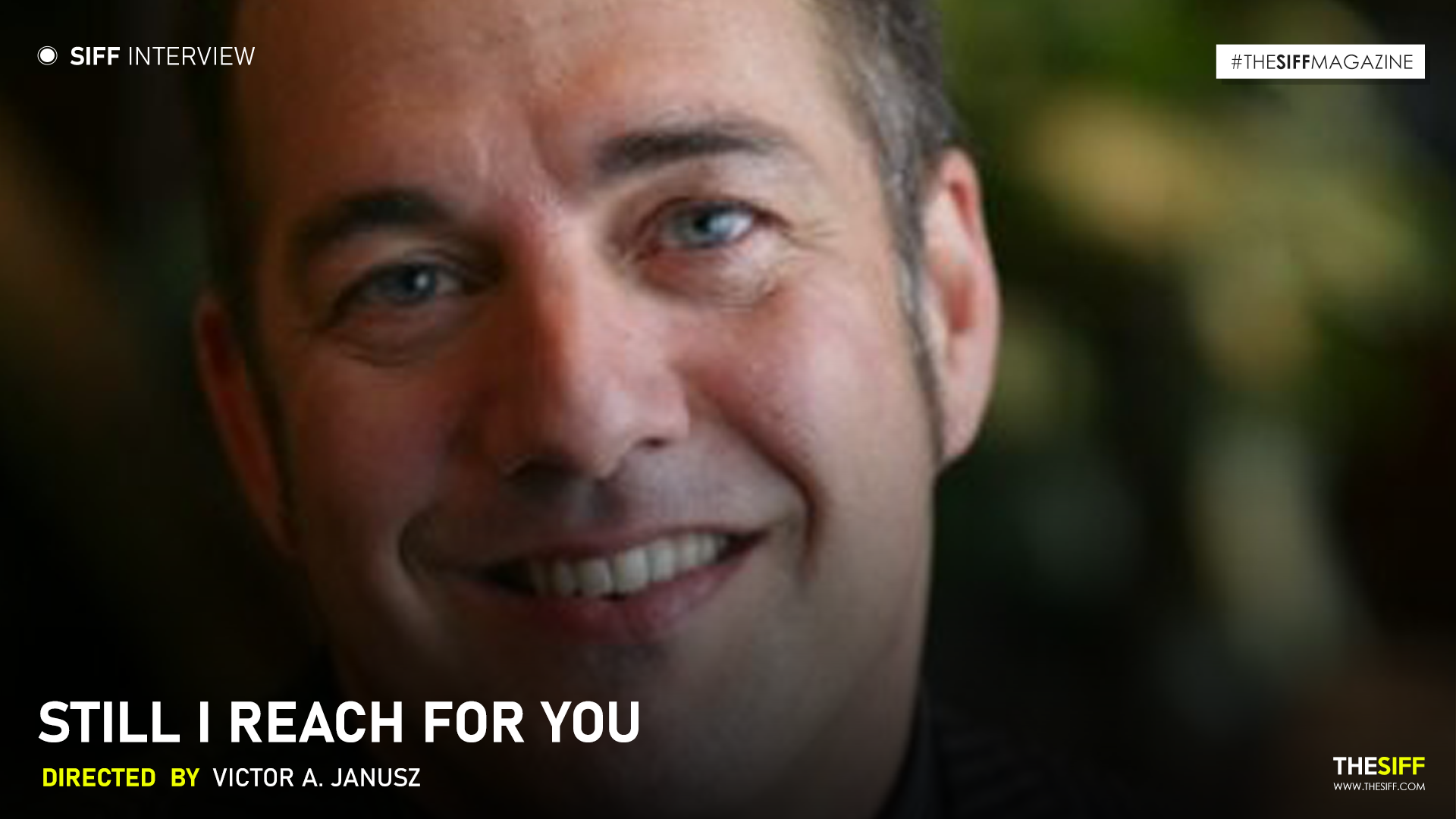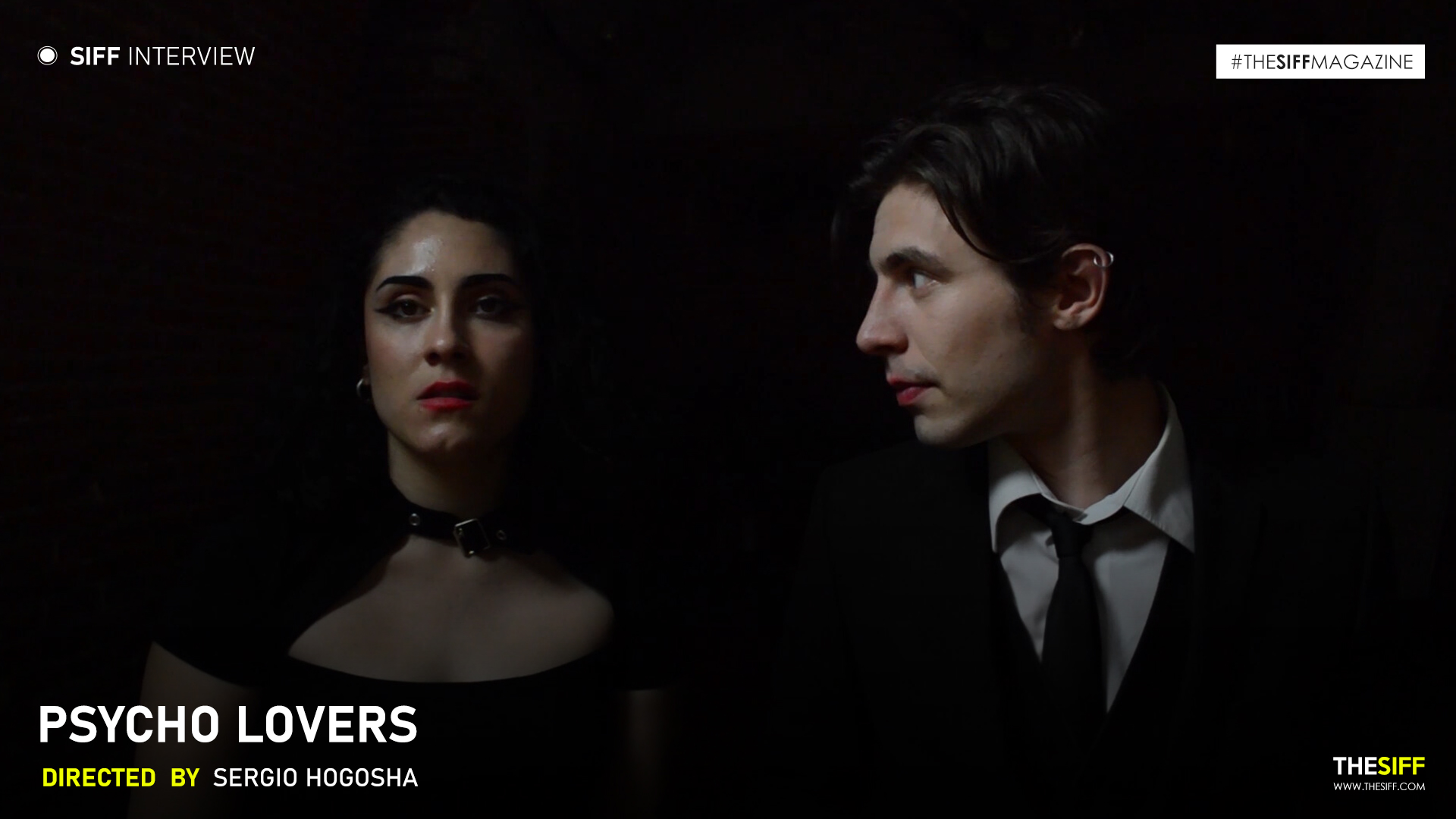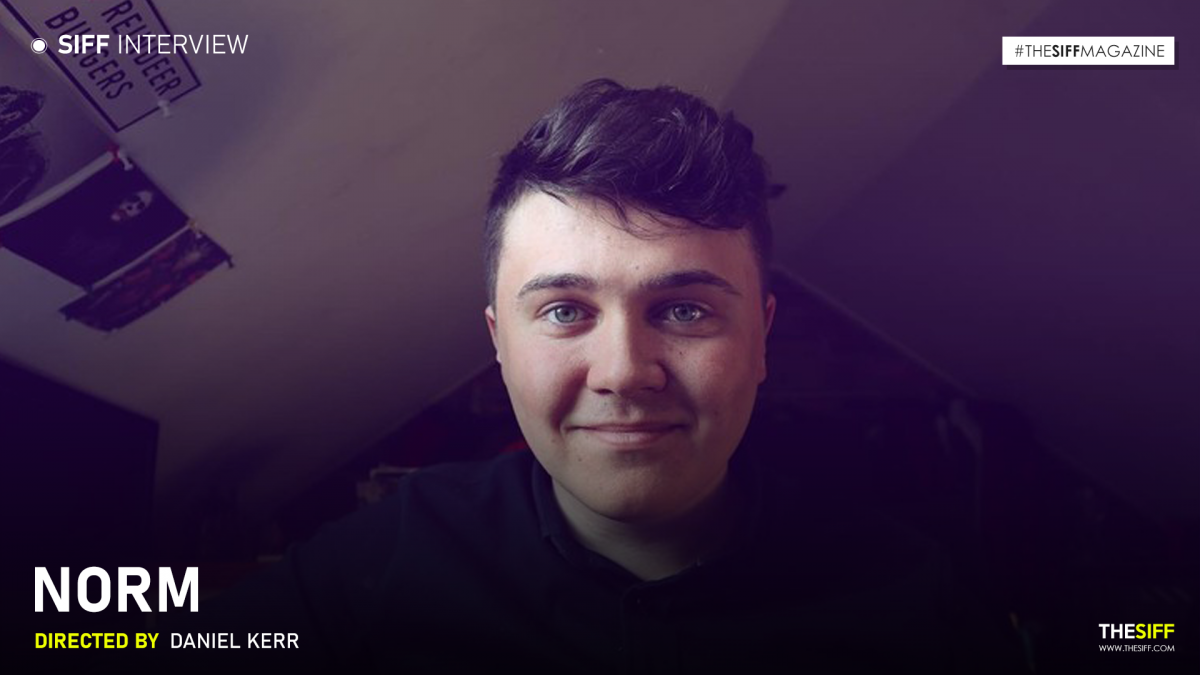
Movie : Norm
Director : Daniel Kerr

Daniel Kerr is a BAFTA winning actor and ‘Norm’ is the first film he has directed. He has been an actor for many years and through his time in the industry has come to appreciate the technical side of storytelling. Hailing from Scotland he has achieved moderate success through acting in projects that earned him a Scottish BAFTA as well as an NTA nomination.
Welcome to The SIFF Magazine, Daniel! It feels great to have you here.
1.Tell us something about your journey in this entertainment industry! How did it begin?
The journey started with my acting career. I’ve been quite lucky thus far with my acting exploits and when you’re on film sets for a long time you tend to pick up tips and tricks for filmmaking. That’s really what got me interested in making something of my own. As well as a fascination with characters and stories. That’s always been there but my experience on lots of different productions gave me some tools to try and create my own projects.
2.Films are said to be capable of changing people and their perspectives. What does a film mean to you?
A film, to me, is the expression of an individual’s experiences or ideas.
3.Norm reflects a lot on this society. Body dysmorphia is an extremely relevant issue in today’s world. And it was truly commendable of you to bring out such a topic in your film. What inspired you to tell the story?
Thank you, I appreciate that. Really what inspired me was my own feelings about the way I look and how I think others perceive me. I did, and in many ways still do have a harshly critical view of my body. I’m unsure how much of that has to do with acting but I would find myself being judgemental of others, in some pretty nasty ways. Unproductive ways. And it all stemmed from a disgust for myself. I should imagine that disgust comes from our society’s obsession with image but I have to take responsibility for my feelings and thinking like that can make you a pretty dislikable person.
4.While crafting the story, how close did you feel to Norm?
Very close. The film is a character study, which is my favourite genre of film, and the character shares traits with myself. Obviously in a much more extreme way but I have a hard time believing that Norm is some larger than life character. I think we’ve all felt like he does. Putrid and malicious. Because of our own failings and obstacles. It really doesn’t take much to become like Norm and I think more of us are like him in ways we’re not comfortable admitting.
5.What was your intention behind naming your character “Norm”?
Firstly, I just thought of it as a slightly unusual name. A name that stands out but I also chose it to comment on how I think the opinions and methods of the character are quite normal to most. As in ‘the norm’. I think there’s a great number of people that try to deal with their problems in unhealthy ways, ways that they’re blind to. They can’t see that it costs more than the actual results themselves.
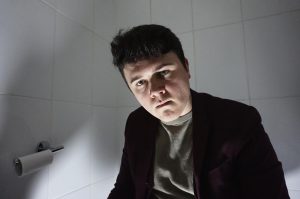
6.From your childhood to now, how do you think your perception of body image has changed?
I don’t think we’re aware of how much simple interactions with society shape our opinions. It all starts from childhood, attitudes, opinions, temperament. I truly believe that most are a product of their surroundings and as we become more connected with the internet and social media it isn’t hard to see why the way we look is so important to us. We’ve always seen body standards that are unrealistic and we strive for them. I wasn’t confronted by this until I started to gain weight
7.For The Wee Man, you have won the BAFTA for new talent. You have also starred in multiple popular series. Working with someone always comes with its own pros and cons. But when you’re working alone, there are a lot of responsibilities involved. How overwhelming was the entire filmmaking process?
It was actually pretty relaxing for myself. I wasn’t on any specific timeline with the film so I took my time and experimented. Working with yourself is really good for creative control, you get to have your way. But you’re also limited in the amount that you can do. Working with others may not be as auteur but the scope at which you can achieve is much greater.
8.How long did it take you to make the movie? What obstacles did you have to face?
All in all it took around 3 months. That includes writing. The biggest obstacle was filming at night. There’s shots that take place around the town I live in, all of these were at night and it was winter when I filmed them so it was absolutely freezing. There’s also the awkward sight of me at 23:00 on the streets with camera equipment. I had more than a couple of people ask me what I was doing. It’s uncomfortable trying to explain that you’re making a short film and not filming through people’s windows.
9.Filming “Norm” must have been exhausting at times. How did you get over that phase?
Really just remembering the purpose of the film, to shed light on the toxic feelings around body image. Because I had an emotional stake in the film it was a lot easier for me to remain committed throughout. On other projects I’ve wanted to slow down or sometimes stop altogether but because this was mine there was a certain level of protectionism and extra energy around finishing it.
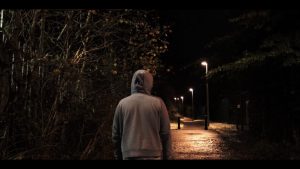
10.As a filmmaker from Scotland, how would you assess the film market there?
I would say that it is certainly lacking. A lot of big productions come to Scotalnd to film: Indiana Jones, Batman, Lord of the Rings, Outlander etc. but there is nowhere close to the same amount of homegrown talent. Filmmakers in Scotland that reflect Scotland are few and far between. We have a huge amount of actors that do extremely well in the industry. I just wish there were more creatives getting the recognition they deserve.
11.Daniel, if you could share how “Norm” shaped or changed you as a person, it would be great for our young readers!
I think ‘Norm’ has made me a more careful thinker. Kinder to myself and others. It gave me a chance to examine the feelings I was having and realising how futile a lot of them were. Now I couldn’t just stop feeling them because repressing bad feelings is just as unhealthy as having them. But processing feelings, accepting them and moving on is something I would recommend and I think I’ve done that.
12.Scotland has always been a leading name whenever it comes to actors or shooting locations, but there is always a void when it comes to Scottish films. As someone who is deeply rooted in the culture, what changes do you want to bring in?
I love this question, you’re totally correct. I would love to see stories from Scotland, films that share our humour and character. I think there’s so much talent here that’s untapped and the talent that is tapped is often changed or altered to suit different audiences. There’s a gritty charm that anyone who lives in Scotland is familiar with and I would love to see that in homegrown talent rather than stereotypes told by other creators.
13.Daniel, it is always a pleasure to know the perspectives of the youngsters. As a storyteller, what kind of stories do you want to tell your audience?
You’re absolutely right, the younger generation have a totally different world to navigate so I think it’s worth telling stories that reflect the challenges they face. Whether it’s a crisis of identity or climate change, the world is going to look very different by the time my generation is in its senior years. I want to tell stories about characters that grapple with their hearts, that face the complexity of life. Characters that are human and not just black and white. Characters that are grey.
14.Have you planned your next project? What is it about?
I have and am in the process of filming now. Without giving too much away it’s, in reference to the previous question, about two grey characters. Characters that have had vastly different experiences and come into conflict over a bit of sport. I knew after I had finished Norm that the next project had to be bigger and more dynamic and I think I can achieve that. So I’m really excited to get it done and for you all to see it.
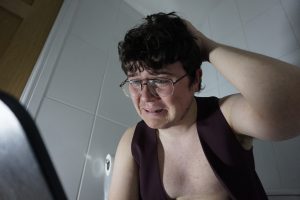
15.Daniel, the young generation and many other people take drastic steps to fit into the ideal category created by society. What message do you want to give out to our readers regarding this issue?
I think fitting in has its uses sometimes but I generally believe to progress we have to think outside the box and maybe do things that are unconventional. I would also say that if fitting in costs you happiness then avoid it at all costs. Don’t be pigeon holed by others into an ‘ideal’. I don’t think there is an ideal to be found, there’s only doing what you can with the time you have. It’s a cliche but do what makes you happy and try to be kind.
16.Thank you for being so kind and patient and spending so much time with us. Lastly, I’d like to know how your experience of working with The Swedish International Film Festival (SIFF) was?
My experience was fantastic, with the nomination and now this interview. Extremely thorough and interesting questions. Thanks so much for your time and I hope you enjoy the finished product. 28th January at 18:30 on YouTube. Thanks again.
Thank you Daniel! It was great talking to you.


